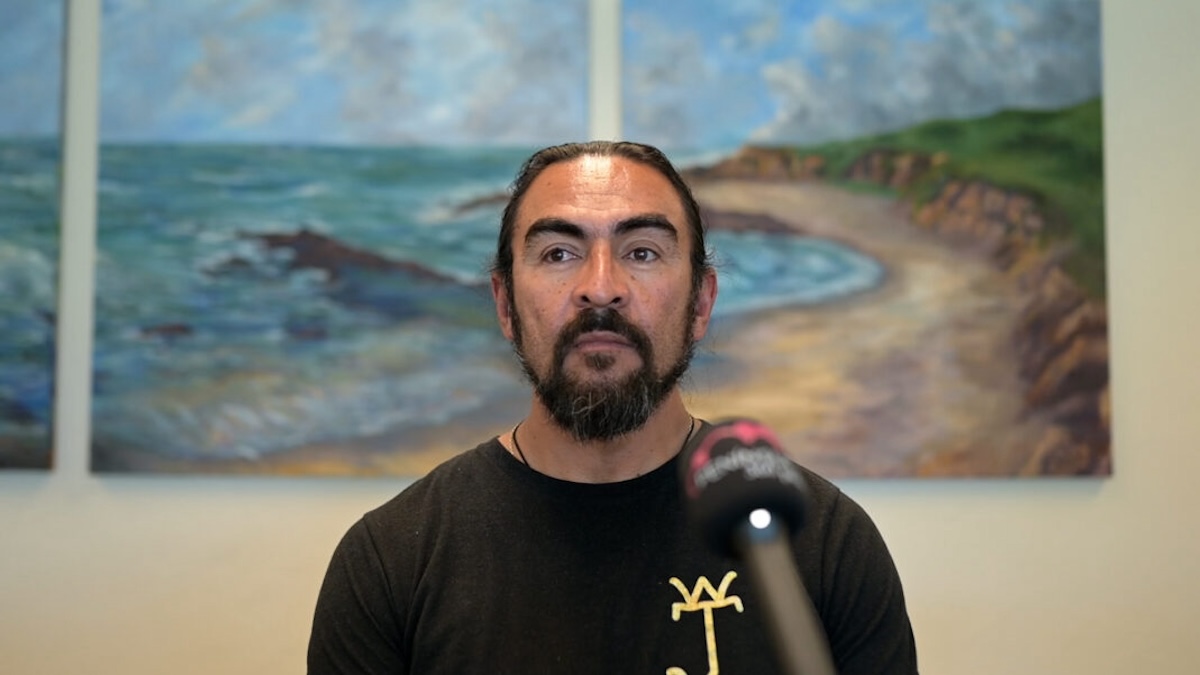California Governor Gavin Newsom issued a warning last week against the small coastal city of Half Moon Bay for its apparent delay in approving development for farmworker housing.
Plans for the development took on added importance after a mass shooting that killed seven farmworkers in January of last year. It would provide 40 units of affordable housing set aside for senior farmworkers and is currently under review by the city’s planning commission.
“Instead of doing the right thing and approving much-needed housing for the workers who feed us, a 40-unit complex for low-income seniors is being stalled by local officials,” read a statement put out by the governor’s office last week. “This delay is egregious and jeopardizes the well-being of Californians.”
In his statement Newsom threatened legal action if the project continues to be delayed.
In response, Half Moon Bay Mayor Joaquin Jimenez described the governor’s remarks as an attack on his office and city officials. Originally from Mexico and the son of migrant farmworkers, Jimenez has long worked in the community and says Newsom does not understand the process that is currently underway regarding the development.
“This is an attack, it’s a threat, saying that if the planning commission of Half Moon Bay does not approve development of this new building to house farmworkers, he will sue.” Jimenez continued, “He doesn’t understand the process we’re following.”
Tuesday is the commission’s next and final scheduled hearing where members are expected to continue to receive public comment on the planned development.
According to Jimenez, contrary to the governor’s accusations, the commission has been focused on the needs of the farmworker community.
“There has been talk that the city is against housing conditions for farmers and that is not true at all,” he said. “We have been working hard to have those opportunities to build.”
He added the commission is simply doing its job, reiterating that the governor needs to understand the process now underway. That process to date has involved two separate commission hearings, the first on April 27 and a second on April 30, during which community members were invited to provide their input.
Jimenez says while there were voices in favor and against the project, he was surprised to hear opposition from officials with the Catholic church, Our Lady of the Pillar, which is located near the site of the proposed development.
“I am truly surprised,” said Jimenez, noting that as far back as 2019 the church had expressed support for the project, but that more recently the church “sent two representatives to our last city meeting to say that they were against the development,” arguing that it would negatively impact parking for church members.
Efforts to reach the church for comment were unsuccessful.
Jimenez speculated that Newsom is likely unaware of the twists and turns in the commission proceedings. “He could have waited until May 14 to say something,” he said, in reference to the expected date when the commission will issue its decision.
Jimenez worries the remarks by Newsom could complicate efforts and create “problems in the community.”
Asked what could happen if the commission rejects the development project, Jimenez explained that there would be an appeals process but that barring its success a lawsuit from the state could be expected. He also said there are worries that funds for the project – to the tune of millions of dollars – could disappear if construction doesn’t get underway soon.
Jimenez declined to state his own position on the development, noting it could disqualify him from any potential appeals in the future should the plan be rejected.
But the mayor is involved in a separate farmworker housing project developed in the aftermath of the January shooting and that is being supported by San Mateo County. The $15 million project involves 47 units of affordable housing and is expected to be completed in early 2025.
Update: On Tuesday the city’s planning commission approved the proposed housing after an hour’s long meeting, with recommendations and adjustments to the original proposal based on community input forwarded to the City Council.
This story was originally published in Spanish by Peninsula 360 Press.




